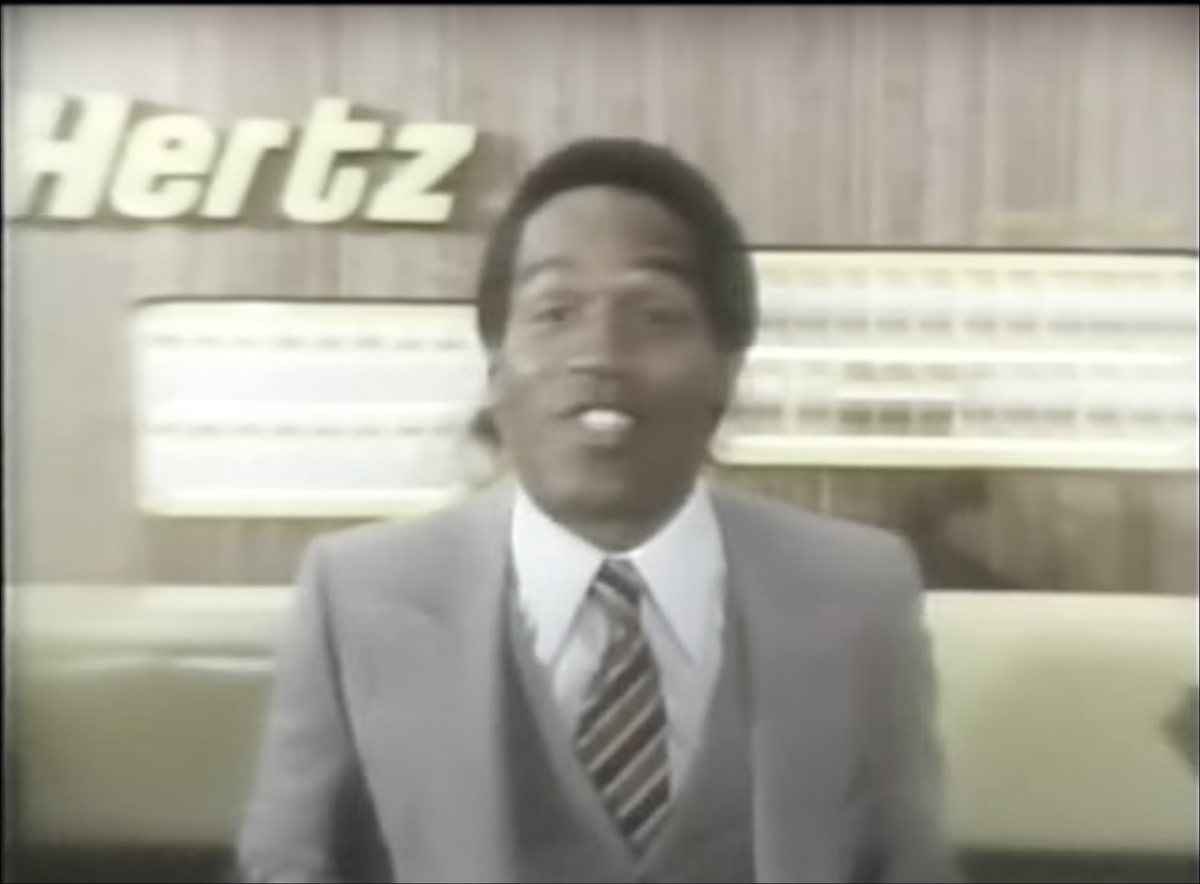Commentary
Putting O.J. In The Driver's Seat
- by Barbara Lippert , Columnist, April 11, 2024

People say that we should not speak ill of the dead, but does that hold up for murderers?
The closest O.J. Simpson ever came to making a confession to the 1994 murder of his ex-wife was in his book, If I Did It: Confessions of a Killer, a very curious tome that essentially admitted he did.
There’s no doubt that early in his career he was a handsome, charismatic fellow, a Heisman Trophy winner and brilliant NFL running back. From the start, he deeply loved the world’s attention, especially from advertisers who paid him well. And in turn, millions of Americans admired and even loved him.
But how unenlightened we were, back in the ‘90s, about domestic abuse and acknowledging the warning signs.
Due to O.J.’s menacing need for control, his wife at the time, Nicole Simpson, couldn’t easily leave her marriage, even after having called LA police several times for help. At one point, she had sustained such massive bodily injuries from being beaten by her husband that she was hospitalized for a week.
advertisement
advertisement
She eventually was able to divorce him. Little more than 18 months later, she was savagely murdered at age 35, along with Ron Goldman, a young waiter who had stopped by her house to return her mother’s glasses after a family dinner – sans O.J. – at the restaurant where he worked.
And like everything else about O.J., the coverage tells us a lot about our culture right now. Cable news is delivering wall-to-wall obits of “The Juice” while the networks don’t seem to have prepared any packages on the nature of domestic violence or how to help.
O.J. was acquitted, of course, but later imprisoned for armed robbery and kidnapping, and died without ever directly confessing.
So there’s this wariness about what news outlets can say.
Still, we’re fascinated by the history and made-for-TV compelling footage. Maybe we want to relive the notorious White Bronco chase and the “Trial of the Century” because it was so unforgettable. Like the Kennedy assassination, people remember where they were and what they were doing at the time.
Perhaps no other American celebrity delivered such extreme highs and evil lows in his lifetime.
L.A. was a city divided by the policing of racist cops at the time. That came out at the trial, along with O.J.’s ability to hire great lawyers. I’d give anything to not have the “If it doesn’t fit you must acquit” line repeated endlessly, and please don’t get me started on the Kardashian connection.
Certainly, one of the high parts was O.J’s relationship with Hertz. It benefited Hertz, O.J. and the country, in that no Black “star” had fronted for an enormous conservative (white) corporation before. Hertz’s sales grew tremendously through the various incarnations of O.J. in its ads.
But on the award-winning 2016 ESPN documentary series, “O.J., Made in America,” Harry Edwards, a professor emeritus of sociology at UC Berkeley, qualifies that by saying "O.J. was the first to demonstrate that white folks would buy stuff based on a black endorsement -- as long as it was not pressed as a black endorsement."
But Hertz knew what it was trying to do.
Hertz's relationship with O.J. began in 1975. The agency was Bates, and it came up with a “Unique Selling Proposition” – the need for speed for Hertz’s overwhelmingly white male businessman customers.
That morphed into "The superstar in rent-a-car" as a slogan; since O.J. was both a star and the human embodiment of speed at the time, he was chosen as spokesman.
But what Professor Edwards pointed out was true: O.J was shown in a khaki suit, running through an airport, holding a leather attaché case like a football, gracefully jumping over dividers and escalators as a crowd of all-white extras cheered him on.
Throughout the years, Hertz CEO Frank Olson enjoyed "rubbing shoulders with O.J.'s glamorous world and having the ability to use him to schmooze with clients," one Hertz source said on ESPN. "Olson always said that O.J. was part of the Hertz family."
In fact, Nicole’s father owned a franchise, and the White Bronco was a freebie from Hertz. O.J. fled for Chicago on the night of the murders to attend a Hertz corporate function.
The Hertz deal made him a household name and gave him wealth. It was the springboard to movie roles and many other endorsements.
From all accounts, everyone loved working with him. He was affable and easy, with zero complaints. Once the account moved to Scali, McCabe, Sloves, he was perfectly happy to hang in a harness all day in Newark Airport, appearing as Superman in spots, when the slogan changed to “Where Winners Rent.”
But what set me off on the subject originally was seeing some ad people posting photos of themselves on social media, standing next to The Juice on sets, recalling the good old days. It’s not a good look.
Rest in peace, Nicole and Ron.



